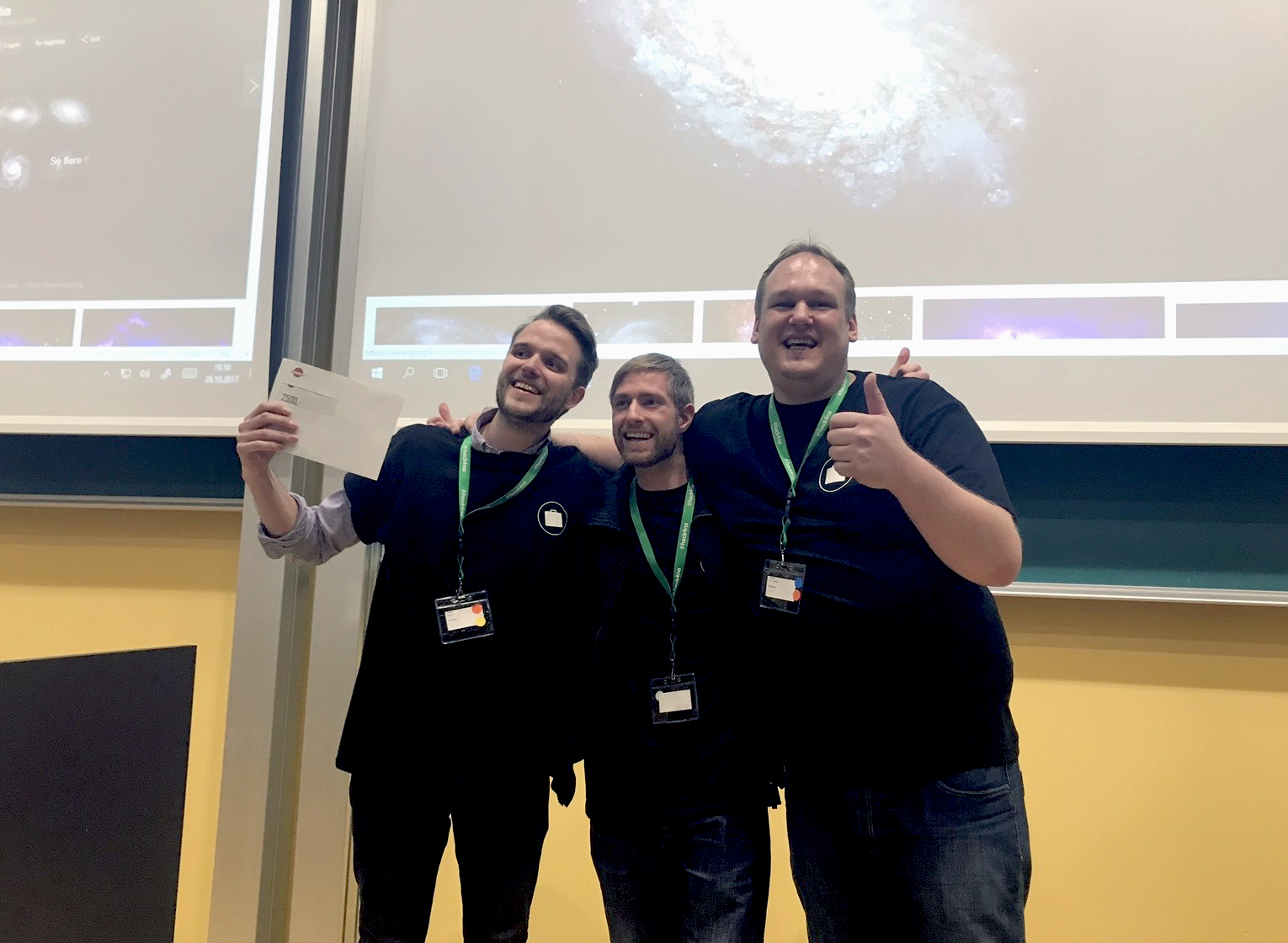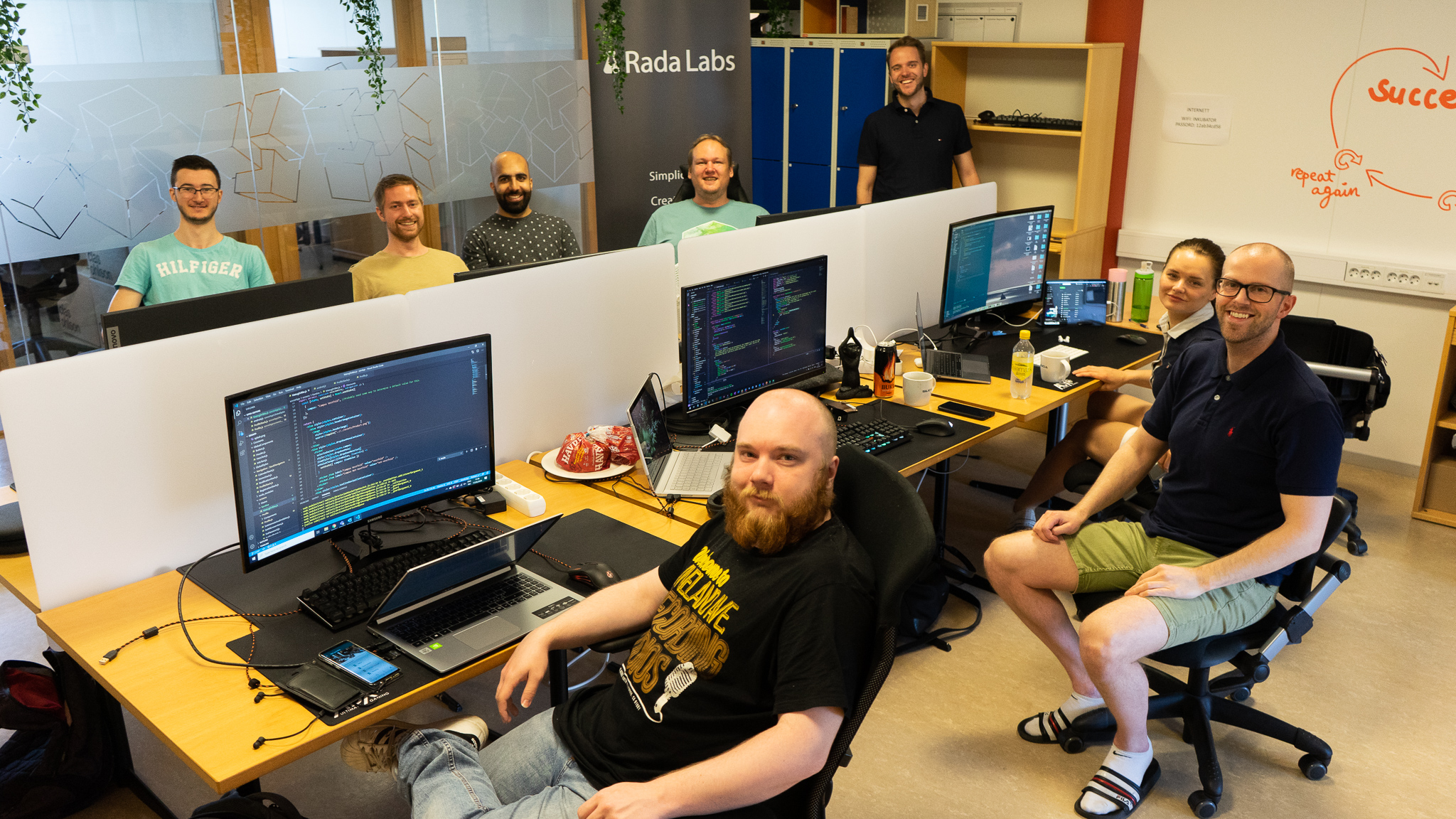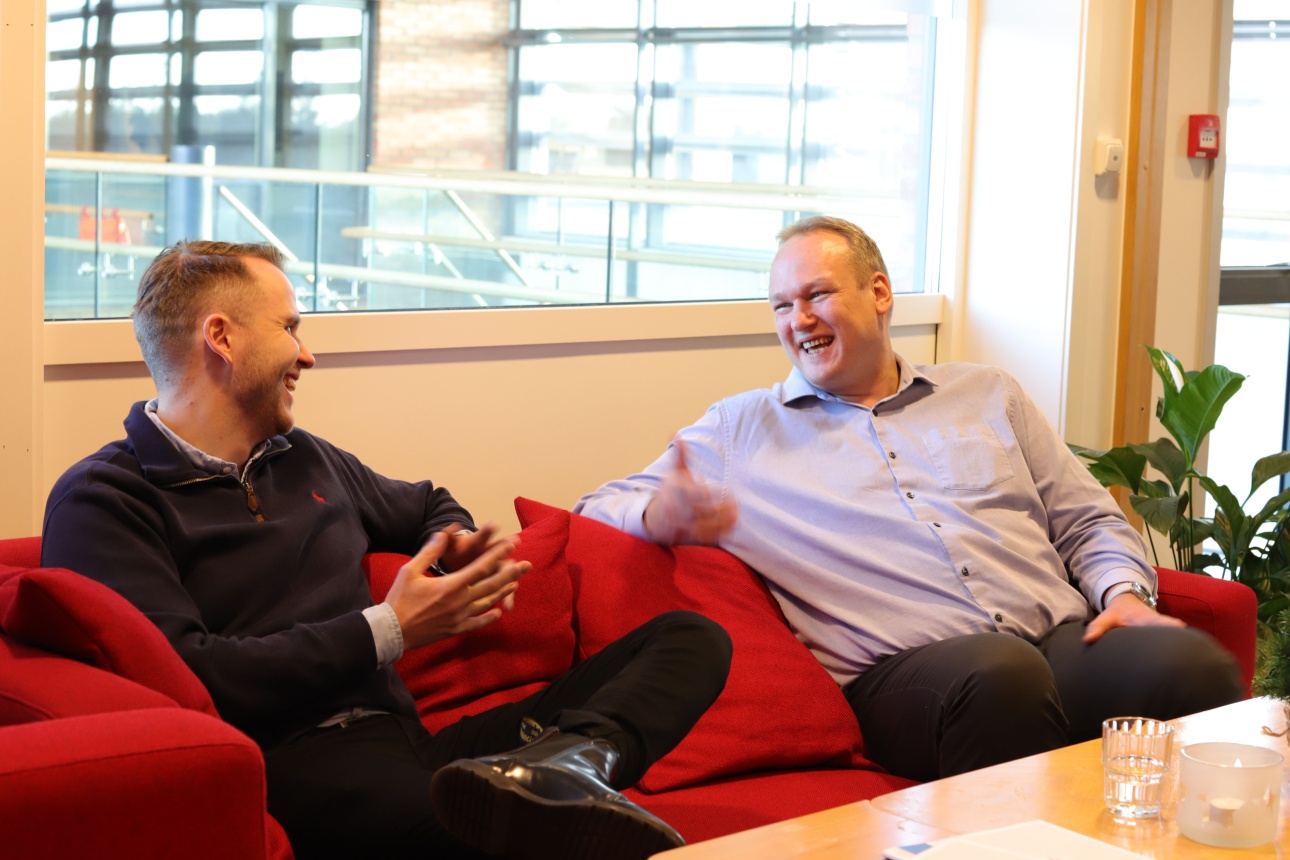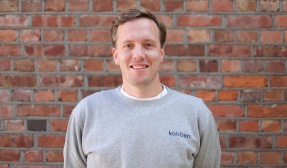A lot has happened in a few years for Rasmus and Dan in Rada Labs. From being two students with a passion for tech and innovation to a company with several employees, large projects in the portfolio and millions in turnover , they have shown that it is possible to combine full-time studies and build your own workplace at the same time.
-The core of Rada Labs is to realize ideas. It is not so important whether it is our own or our customers, says general manager and co-founder of Rada Labs, Rasmus Tyrén.
For several years, he has worked with co-founder and CTO of Rada Labs, Dan Trygve Olsrød, on projects within app development, consulting and own innovation projects. Together they have built the company that is today called Rada Labs AS.
Combining full-time studies with full-time jobs has not been easy, but very rewarding, the boys say. Several of the projects they have worked on have been used in school assignments, and in that sense it has been positive in several situations to try the entrepreneurial dream as a student.
-It has been demanding, but very fun, the entrepreneurs say
-It is clear 100 percent studies and 100 percent work are many hours in a day where you do these things, but you get synergies in it also where you can take what you learn at school and test it in practice . We have both talked about learning something at school and then coming here to Kobben in the afternoon and working with it and using it in practice has been a key to getting higher grades and learning the subject matter better, Dan says.
Hackhatons and innovation
They met for the first time when they together with Vestfold Studentsamsfunn arranged in 2017 LAN parties and hackathons for students. Both studied at the university, Rasmus Economics and Dan IT, but it did not take long before they found out that they shared the same commitment and interest in technology and innovation, and later that evening they sat down to hatch their own ideas.
-We started to dabble in ideas and play with how we should innovate the job search industry, Rasmus explains.
And the drodling gave results. Together they came up with Joober, an app that gathers all the job advertisements in Norway in one place. A short month later, they participated in the hackathon Hack4NO, a competition organized by USN and the Mapping Authority.
-It went great! We won the innovation award from NAV, where we won 1500 kroner and got access to a great network, says Rasmus.

After the competition, they continued to work on the app. The boys got access to what they needed to make a full-fledged prototype and in a group room at the university they coded and developed an app that managed to collect all job advertisements in the country and sort them into lists.
- That was the start. So we started thinking, how are we going to take this further? Then we went to Innovation Norway and applied for money for further development, but there was a stop, Rasmus says.
Help from Kobben
There was no support from Innovation Norway, but a place in Kobben's student incubator.
-I remember the first 1500kr we invested in computer systems so that we could continue with this. We also started selling some websites to make some money, among other things we made websites for several of the founders at Kobben and for Electronic Coast, Rasmus recalls.
Rada Labs gradually progressed from being a student company to becoming part of Kobben's incubator. They got their own office and expanded the team. At most there were 13 employees, now there are 6. According to the founders, the network that came along has been essential for the development of the company.
-It has been very important to be part of an environment like Kobben. Both to open a network for us, but it has also built some credibility for us in an early stage. In the beginning, we got a lot of help, including in how to build business models and the whole methodological on how to take our ideas further. It was very useful for us, because we did not have much expertise in that part before, says Rasmus.
-Yes, we had not touched a Business Model Canvas before we started here, Dan adds.
Several of the employees at Kobben have experience as entrepreneurs and have worked closely with the business community. Not least, Kobben has worked with hundreds of companies and entrepreneurs, where some have succeeded and others have not. Thus, the advisers at Kobben know what it takes to succeed.
-I experience that it is very low text to go and ask those who work here. What has been valuable for me is to be able to knock on the door of anyone in Kobben, sit down and present an issue and get input back by, among other things, hearing how other companies have done it, says Dan.
The founders point out that getting away from the group room at the university and into an environment with like-minded people has helped a lot. And you should not sneeze at a little coffee talk.
-It's also a little fun for a coffee chat can be just a coffee chat, but it can also be to hear how someone else has solved a problem or how it goes with them, and it can be a lot of learning in such a conversation even if you work in completely different fields, says Dan.
Now the boys have moved to Oslo. There they plan to continue building their company and continue with projects – current and new.
Also read: bet on green hydrogen
Important with networking
Because at the same time as the guys in Rada Labs became part of Kobben's incubator, they came into contact with several other entrepreneurs and investors at Kobben, with whom they later collaborated. Among other things, they came in contact with Martin Kolbrek and Nicolay Ingebretsen who had a similar idea as Dan and Rasmus.
-We had similar appidies, where ours was called VAPP and theirs was called Clikk, so then we joined forces, got MTI startup and their network on the team and started to map the prefase in Clikk, Rasmus says.
The first step was to explore the market and create a prototype.
-We started by looking at technologies and how we could solve it. And then eventually get money raised from Innovation Norway. It was perhaps the first time we cracked the code to get support for the web and app from Innovation Norway. We realized that a lot went on angling and bringing out what kind of product this was. Clikk is not just an app, but a tool for making contacts, Dan says.
At the same time, Rada Labs received an inquiry from SSN (Studentsamskipnaden i Sørøst-Norge) who wanted to create an app for the students.
-We were very active in the student community at USN and participated in much of what happened on campus. In that way, we got in touch with SSN, who wanted us to be involved in creating the app from a student-and-entrepreneur perspective, Rasmus says.
In March 2020, a week before Norway closed down, they arranged the innovation competition «Ideathon 2020». They invited about 100 students to a weekend at the Student House on Bakkenteigen to come up with ideas for what would be Norway's best student app.

-There were many good ideas and sketches, and after the competition we went further in the process and began to map a plan and idea based on the winning team (Password 123)'s idea, Rasmus says.
Together with SSN and Prosesspilotene, they went further to set up the system. The employees employed the majority of the winning team Password 123 in Rada Labs, as they had IT experience, and in the summer of 2020, they started developing the student app.
-The key word was "by students for students". It should be user-driven innovation, says Rasmus.
But it is clear that creating an app takes time. The prototype for the student app was ready in late summer 2020, but only in the autumn of 2021 was it ready for launch. At the same time, they worked on other projects, such as Clikk. In the spring of 2021, they launched an early version and in the fall of 2021, at the same time as the student app for USN was launched, they launched the full version of Clikk.
-What was a little cool in 2020 was when we made our first million in turnover. It was big for us, says the general manager.
- Let go sometimes
When entrepreneurs are asked what they have learned from their time as an early-stage business, they spend some time thinking about it. Three things stand out; learning, be open and dry let go.
-A word that is repeated all the time is learning I would say. We have learned so much in these years. I also think one of the most important things for an entrepreneur is to be open and learn to think outside the box, says Rasmus.
The founders think this is one of the reasons why Rada Labs has had such a great development in recent years, precisely because they have dared to be open to changes along the way.
-Look at us, we have several times had to pivot and change our business model through the process. We were to start as a job application and it has ended with us being a company that develops and realizes ideas within digital platforms, says Rasmus.
Dan adds:
You have to dare to let go sometimes. Sometimes when you dare to go outside the box and think new, greater opportunities can arise than you would have had in the first place. Of course, it is important to stick to your vision, but you should see it with a broad view.
Because everything you do is learning, the entrepreneurs conclude.
-We have seen that we have had to let go of ideas during Rada Labs' lifetime, but then it is about remembering that in everything you let go, you have a learning. We learned extremely much from our first app Joober. And sometimes you get the opportunity to pick up your heart child again on a later occasion and use old familiar cases in a new setting, Dan concludes.
Also read: How to start your own business


